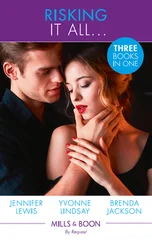Elizabeth George - For the Sake of Elena
Здесь есть возможность читать онлайн «Elizabeth George - For the Sake of Elena» весь текст электронной книги совершенно бесплатно (целиком полную версию без сокращений). В некоторых случаях можно слушать аудио, скачать через торрент в формате fb2 и присутствует краткое содержание. Жанр: Детектив, на английском языке. Описание произведения, (предисловие) а так же отзывы посетителей доступны на портале библиотеки ЛибКат.
- Название:For the Sake of Elena
- Автор:
- Жанр:
- Год:неизвестен
- ISBN:нет данных
- Рейтинг книги:4 / 5. Голосов: 1
-
Избранное:Добавить в избранное
- Отзывы:
-
Ваша оценка:
- 80
- 1
- 2
- 3
- 4
- 5
For the Sake of Elena: краткое содержание, описание и аннотация
Предлагаем к чтению аннотацию, описание, краткое содержание или предисловие (зависит от того, что написал сам автор книги «For the Sake of Elena»). Если вы не нашли необходимую информацию о книге — напишите в комментариях, мы постараемся отыскать её.
For the Sake of Elena — читать онлайн бесплатно полную книгу (весь текст) целиком
Ниже представлен текст книги, разбитый по страницам. Система сохранения места последней прочитанной страницы, позволяет с удобством читать онлайн бесплатно книгу «For the Sake of Elena», без необходимости каждый раз заново искать на чём Вы остановились. Поставьте закладку, и сможете в любой момент перейти на страницу, на которой закончили чтение.
Интервал:
Закладка:
Townee , she thought, and rushed forward.
The crouched figure stood, backed off at Elena’s approach, and seemed to disappear into the heavier mist near the footbridge that joined the path with the island. Elena stumbled to a stop and fell to her knees. She reached out, touched, and found herself frantically examining what amounted to nothing more than an old coat stuffed with rags.
In confusion, she turned, one hand on the ground, pushing herself to her feet. She drew in breath to speak.
As she did so, the heavy air splintered before her. A movement flashed on her left. The fi rst blow fell.
It hit her squarely between the eyes. Lightning shot through her field of vision. Her body fl ew backwards.
The second blow crashed against her nose and cheek, cutting completely through the fl esh and shattering the zygomatic bone like a piece of glass.
If there was a third blow, she did not feel it.
It was just after seven when Sarah Gordon pulled her Escort onto the wide section of pavement right next to the University Department of Engineering. In spite of the fog and the morning traffic, she’d made the drive from her home in less than five minutes, charging over Fen Causeway as if pursued by a legion of ghouls. She set the emergency brake, clambered out into the damp morning, and slammed the door.
She marched to the boot of the car where she began pulling out her equipment: a camp stool, a sketch pad, a wooden case, an easel, two canvases. When these objects lay on the ground at her feet, she stared into the boot, asking herself if she had forgotten anything. She concentrated on details-charcoal, temperas, and pencils in the case-and tried to ignore her increasing nausea and the fact that tremors weakened her legs.
She stood for a moment with her head resting against the grimy open lid of the boot and schooled herself to think only of the painting. It was something she’d contemplated, begun, developed, and completed times beyond counting ever since her childhood, so all the elements should have been old friends. The subject, the location, the light, the composition, the choice of media demanded her full concentration. She made an attempt to give it to them. The world of possibility was opening. This morning represented a sacred renaissance.
Seven weeks ago, she’d marked this day on her calendar, 13 November. She’d written do it across that small, white square of hope, and now she was here to put an end to eight months of paralysed inactivity, utilising the only means she knew to find her way back to the passion with which she’d once greeted her work. If only she could muster up the courage to overcome a minor setback.
She slammed home the boot lid and picked up her equipment. Each object found its natural position in her hands and under her arms. There wasn’t even a panic-filled moment of wondering how she’d managed to carry everything in the past. And the very fact that some behaviours did seem to be automatic, like riding a bicycle, buoyed her for an instant. She walked back over Fen Causeway and descended the slope towards Robinson Crusoe’s Island, telling herself that the past was dead, telling herself that she’d come here to bury it.
For too long she had stood numbly in front of an easel, incapable of thinking of the healing propensities inherent to the simple act of creating. All these months, she had created nothing except the means of her own destruction, collecting half a dozen prescriptions for pills, cleaning and oiling her old shotgun, preparing her gas oven, making a rope from her scarves and all the time believing that the artistic force within her had died. But all that was ended, as were the seven weeks of growing dread as 13 November approached.
She paused on the little bridge spanning the narrow stream that separated Robinson Crusoe’s Island from the rest of Sheep’s Green. Although it was daylight, the mist was heavy, and it lay against her field of vision like a bank of clouds. Through it, the rattling song of an adult male wren shot out from one of the trees above her, and the causeway traffic passed with the muted rise and fall of engines. A duck wak-wacked somewhere nearby on the river. A bicycle bell jingled from across the green.
To her left, the boat repair sheds were still closed and shuttered. Ahead of her, ten iron steps climbed up to Crusoe’s Bridge and descended to Coe Fen on the east bank of the river. She saw that the bridge itself had been repainted, a fact she had not noticed before. Where once it had been green and orange and patchy with rust, now it was brown and cream, the cream a series of crisscrossing balusters that glistened luminescently through the mist. The bridge itself looked suspended over nothing. And everything round it was altered and hidden by the fog.
In spite of her determination, she sighed. It was impossible. No light, no hope, and no inspiration in this bleak, cold place. Be damned to Whistler’s night studies of the Thames. To hell with what Turner could have made from this dawn. No one would ever believe she had come to paint this.
Still, this was the day she had chosen. Events had dictated that she come to this island to draw. Draw she would. She plunged across the rest of the footbridge and pushed open the creaking, wrought iron gate, determined to ignore the chill that seemed to be inching its way through every organ of her body.
Inside the gate, she felt the squish and ooze of mud sucking noisily against her plimsolls, and she shuddered. It was cold. But it was only the cold. And she picked her way into the copse created by alder, crack willow, and beech.
Condensation dripped from the trees. Drops splatted with a sound like slow-bubbling porridge onto the sorrel tarpaulin of autumn leaves. A thick, fallen branch undulated across the ground before her, and just beyond it, a small clearing beneath a poplar offered a view. Sarah made for this. She leaned her easel and canvases against the tree, snapped open her camp stool, and propped her wooden case next to it. The sketch pad she clutched to her chest.
Paint, draw, paint, sketch. She felt her heart thud. Her fingers seemed brittle. Her very nails ached. She despised her weakness.
She forced her body onto the camp stool to face the river, and she stared at the bridge. She made an assessment of every detail, trying to see each as a line or an angle, a simple problem in composition which needed to be solved. Like a reflex response, her mind began to evaluate what her eyes took in. With their late autumn leaves tipped by beads of moisture that managed to catch and refl ect what little light there was, three alder branches acted as a frame for the bridge. They formed diagonal lines that first stretched above the structure then descended in a perfect parallel to the stairs which led down to Coe Fen where through a swirling mass of fog the distant lights from Peterhouse glimmered. A duck and two swans were misty forms on the river which was itself so grey-a duplication of the air above it-that the birds floated as if suspended in space.
Quick strokes, she thought, big bold impressions, use a smudge of charcoal to suggest greater depth. She made her first pass against the sketch pad, then a second, and a third before her fi ngers slipped, losing their grip on the charcoal which slid across the paper and into her lap.
She stared at the mess she had made of the drawing. She ripped it from the pad and began a second time.
As she drew, she felt her bowels begin to loosen, she felt nausea begin its process of gripping her throat. “Oh please,” she whispered, and glanced about, knowing she had no time to get home, knowing also that she couldn’t allow herself to be sick here and now. She looked down at her sketch, saw the inadequate, pedestrian lines, and crumpled it up.
Читать дальшеИнтервал:
Закладка:
Похожие книги на «For the Sake of Elena»
Представляем Вашему вниманию похожие книги на «For the Sake of Elena» списком для выбора. Мы отобрали схожую по названию и смыслу литературу в надежде предоставить читателям больше вариантов отыскать новые, интересные, ещё непрочитанные произведения.
Обсуждение, отзывы о книге «For the Sake of Elena» и просто собственные мнения читателей. Оставьте ваши комментарии, напишите, что Вы думаете о произведении, его смысле или главных героях. Укажите что конкретно понравилось, а что нет, и почему Вы так считаете.












